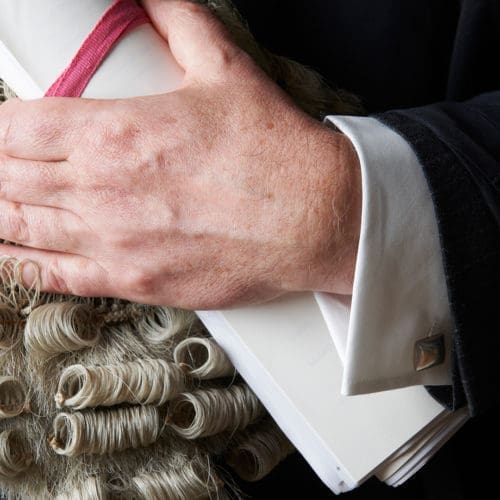Court of Appeal delivers significant decision for trustees and insolvency practitioners
July 2023The Court of Appeal has upheld the High Court decision of Mr Justice Fancourt in Denaxe Limited v Cooper & Anor [2022] EWHC 764 (Ch) striking out a substantial damages claim brought against court appointed receivers concerning the 2019 sale of Blackpool Football Club.
The decision in this case (in which Martin Jensen and Zoe White of Beale & Co and David Mohyuddin KC and Daniel Burton of Radcliffe Chambers acted for the successful defendants) is significant for court appointed receivers, trustees and insolvency office-holders in providing guidance as to the extent to which they may be insulated from subsequent claims seeking to challenge the reasonableness of a strategy which has received the court’s prior approval.
Background and court approval of the sale
Whilst the dispute concerned the sale of the club by the receivers back in 2019, its genesis was the club’s single season playing in the Premier League in 2010-2011. This moment at the pinnacle of English football, albeit brief, nevertheless brought considerable riches to the club both in terms of massively increased revenue in its promotion year and also in respect of substantial “parachute payments” which it received in the period following its swift relegation. However, in 2017, a significant minority shareholder in the club, VB Football Assets (VBFA), was successful in its petition under s.994 of the Companies Act 2006 with the court determining that it had been unfairly prejudiced by Mr Owen Oyston and his son Karl Oyston illegitimately stripping the club of its promotion windfall by paying out substantial sums to themselves/companies in their control by way of concealed dividends. Mr Oyston and his company Denaxe Limited (formerly Blackpool Football Club (Properties) Limited) were ordered to buy back VBFA’s shareholding for a sum in excess of £31million.
Most of the judgment debt remained unsatisfied and conventional enforcement methods proved ineffective. Accordingly, in early 2019, following an application by VBFA, the court appointed, as joint receivers by way of equitable execution, Mr Paul Cooper and Mr David Rubin – both highly experienced in dealing with high profile football clubs – over various assets of Mr Oyston and Denaxe. These assets included, among others, the majority shareholding in the club, its Bloomfield Road stadium, and its training ground. The receivers’ were appointed with a view to effecting a sale of the club and related assets as a going concern in order to discharge the judgment debt.
In the face of numerous attempts to obstruct and frustrate a sale, the receivers successfully secured a deal for the club’s sale in June 2019 for over £8.2 million and in the process averted Blackpool’s risk of relegation the following season. Significantly, before completing the deal, they successfully applied for the court’s approval of the transaction.
The subsequent claim against the receivers
Following their subsequent discharge from office, the receivers were promptly met with High Court proceedings from Mr Oyston’s company Denaxe in which it was alleged that they had undersold the club and related assets by some £80 million. The primary case evolved during the course of proceedings into an assertion that the receivers’ duty to secure the best price for these assets was by way of separate asset sale; the club, Mr Oyston maintained, ought to have been put into liquidation and Bloomfield Road sold for redevelopment.
The receivers applied to strike out the claim on various grounds; primarily because they had immunity against it by virtue of the court’s prior approval, and because the proceedings were abusive in circumstances where the claimant had resolved not to challenge the sale strategy at the point the court was asked to consider and approve it.
Strike out of the claim by Mr Justice Fancourt: 6 April 2022
- The immunity ground
On the issue of immunity, the receivers’ case followed on from the judgment of Marcus Smith J in June 2019 in which he approved the club’s sale. On that occasion, the judge proceeded by analogy with cases involving trustees and administrators (following the line of authorities including Public Trustee v Cooper [2001] WTLR 901, a case concerning trustees, and Re Nortel Networks UK Ltd [2016] EWHC 2769 which extended the principles applicable to trustees to administrators and was a decision of Snowden LJ who delivered the Court of Appeal’s lead judgment in the instant case) in finding that it was entirely appropriate for the court upon application to scrutinise and, in appropriate circumstances, approve a proposed course of action where it involves a “momentous” decision for the beneficiaries. The court went on to find both that the decision regarding the sale was sufficiently momentous that it could entertain the application, and that the receivers had devised and implemented a sufficiently rigorous marketing and sales strategy of the club and related assets that the proposed sale ought to be sanctioned.
The court did not consider it was required at that hearing to determine the issue of whether or not the effect of its approval of the transaction would confer immunity on the receivers in the event of any subsequent complaint regarding the terms of the sale, the judge merely observing that a degree of immunity would appear logically to flow from the analogy drawn.
Accordingly, the receivers contended in their strike out application that the court’s prior approval of the terms of the very sale transaction which the claimant was seeking to challenge rendered them immune to the claim that the sale strategy had involved any breach of duty to obtain the best price for the assets sold.
Fancourt J agreed, rejecting the claimant’s argument that the earlier cases concerning court approval of trustees’ decisions only conferred immunity in respect of assertions of a breach of trust, finding that, “There is no suggestion in the authorities that a trustee is only immune to such a claim and not to a claim for breach of a common law or statutory duty in making a decision to invest or sell.” He went on to clarify that immunity results from the fact that the court has determined that the decision to exercise a power is a proper decision for the trustee or office-holder to have made in reliance upon which approval they then proceed to act. It operates to prevent subsequent complaint by a party affected by that decision that it was improperly taken, whatever cause of action is asserted.
Whilst the claimant sought to argue that the receivers’ application for approval had been of a limited nature (namely to ensure merely that the proposed sale had been within the power conferred by the receivership powers), Fancourt J found that by their application the receivers had expressly sought approval for sale of the club and related assets as a going concern as part of a single transaction; the court had specifically approved the decision to sell those assets “in one transaction, to a specific person, at a specific price.” To assert later that the receivers ought to have entered into an entirely different transaction necessarily involved an allegation that their power had been wrongly exercised in circumstances where the court had already sanctioned the sale as being a proper exercise of their powers. Accordingly, the court determined that the receivers did have immunity in respect of the claim against them that they ought to have sold the assets in a different way which might have realised a higher price.
- The abuse of process ground
In addition to upholding the receivers’ claim to immunity, the court determined that the claim should in any event be struck out as being a Henderson v Henderson abuse of process. It was found that Mr Oyston had every opportunity to raise any genuine concerns about, or object to, the proposed sale of the club in 2019 when the receivers sought the court’s approval and that he had made a calculated decision not to do so. The judge noted that Marcus Smith J had already determined when approving the sale that it had been inappropriate of Mr Oyston merely to reserve his position on that occasion, the implication being that he could not properly raise any post-sale objection on the grounds of value or marketing. The claimant, likewise, did not object to the proposed sale. The judge therefore concluded that it was incumbent upon the claimant to raise any objections to the receivers’ sale strategy at the approval application since they would go “directly to the propriety of the decision made by the Receivers in the exercise of their powers, which was the very question that the Court was being asked to approve.” Had such objections been raised at the time they might have resulted in the sale not being approved with the result that the receivers may have resolved to adopt a different course, rather than proceed with the sale at their own risk. Therefore, the judge determined that the opportunity to bring the present claim arose only as a consequence of Mr Oyston’s calculated decision not to raise objections when he ought to have done, such that the proceedings constituted “the clearest possible abuse of the process of the court.”
The claimant appealed against the striking out of the claim on both grounds and the Court of Appeal heard argument in February this year.
Decision of the Court of Appeal: 30 June 2023
In a lead judgment given by Snowden LJ, with whom Asplin and Falk LJ agreed, the Court of Appeal held unanimously and without hesitation that Fancourt J was right to strike out the claim as a Henderson v Henderson abuse of the court’s process. Mr Oyston had been given the clearest possible opportunity to raise at the approval hearing the fundamental criticism made in the subsequent proceedings and the Court agreed that remaining silent on that issue had been a calculated decision, designed to preserve the club but then to seek to hold the receivers responsible for any adverse financial consequences if proven.
Of much wider significance for receivers and insolvency practitioners, though, is the Court’s analysis of the nature and extent of the protection which may be derived from the court’s blessing in respect of a proposed course of action.
The decision notes that the courts have long had jurisdiction to entertain claims by trustees for the determination of particular questions arising in the execution of the trust (the jurisdiction now being found in CPR rule 64.2(a)), and that they likewise have jurisdiction to give directions to insolvency officer-holders in respect of their functions (for example, pursuant to the Insolvency Act 1986) and to court appointed receivers (pursuant to CPR Practice Direction 69, paragraph 6.1). The jurisdiction can extend to the court approving a proposed transaction in given circumstances, although in such instances applicants would generally not be surrendering to the court their discretion to make the decision (especially in relation to a sale of assets by professional office-holders appointed and remunerated for their commercial expertise) but rather seeking the court’s approval for a proposed course of action they had already resolved to take.
Observing that the whole purpose of applicants seeking court approval for a particular course is to obtain a measure of protection against subsequent complaint about their decisions by interested parties, Snowden J noted one of the singular features of the present case was that none of the English authorities in fact dealt with the situation where, as here, a subsequent claim was brought challenging the wisdom of a transaction which had received the court’s prior approval, and hence no case had addressed directly the precise extent of the resulting immunity. Accordingly, and absent trustees and office-holders having any special legal status preventing claims against them, the Court had to return to first principles to establish just what protection the court’s approval afforded their conduct and its basis in law.
The Court clarified that there was in fact no separate doctrine of English business or property law called “immunity”: in reality, this was judicial shorthand for the doctrines or res judicata and abuse of process. In this context, the only relevant categories of res judicata (identified by Lord Sumption in Virgin Atlantic Airways v Zodiac Seats UK [2014] AC 160) were issue estoppel and the well-known principle formulated in Henderson v Henderson almost 200 years ago.
- Issue estoppel, the Court noted, was a substantive legal principle which operates to prevent parties from relitigating issues where a necessary ingredient to the original cause of action had already been determined in original proceedings to which they had also been a party. The decision on that issue on the earlier occasion is binding on the parties and cannot be reopened, save in exceptional circumstances.
- Henderson v Henderson abuse of process, by contrast a procedural means to prevent abuse rather than a substantive legal principle, serves the same public interest that there should be finality in litigation by enabling a court to determine as an abuse of process (and hence to prevent) an attempt by a party to raise an issue in proceedings where it is satisfied that they could and should have raised it in earlier proceedings if it was to be raised at all. Whilst issue estoppel prevents attempts to relitigate issues which were a necessary ingredient of the original cause of action between parties to the original proceedings, Henderson v Henderson abuse is potentially broader in its scope, both as to the centrality of the issues to the decision and the identity of the litigants. Here the crucial question is whether in all the circumstances a party is misusing or abusing the process of the court by seeking to raise before it issues which ought to have been raised in earlier proceedings.
The Court noted that in considering the application of either of these principles, it was necessary to focus on the issues which were in fact determined by the first court (issue estoppel) or those which could and should have been raised for determination on that occasion (Henderson v Henderson abuse) and then compare those with the issues the claimant seeks to be determined in the later proceedings. It followed from that, the Court held, that the precise juridical origins of an applicant’s duties or the subsequent cause of action pleaded was irrelevant to the scope of the protection an approval decision afforded; what matters is the extent to which any underlying issues essential to establishing the cause of action later advanced have already been determined.
Understanding the concept of the “immunity” which flows from an approval decision in this way, by reference to a comparison of the issues key to both proceedings, highlights that the extent of immunity which flows from the court’s approval is not a “one-size fits all” answer, the Court observed. What the authorities demonstrated is that the issues which a court will be prepared to determine on an approval application will vary from case to case. Accordingly, if the court were asked only to determine that trustees were acting honestly and rationally in adopting a particular course, they would be protected against a subsequent complaint that they had acted otherwise. The scope of the court’s inquiry might be broader than that; it may be asked to determine whether, for example, a proposed sale of assets satisfied the applicant’s duty of care to obtain the best price. However, the Court noted that the approval process is intended to be quick and accessible, not a mini-trial, and that courts were likely to be wary of determining that sort of issue absent the production of substantial evidence to enable a proper examination. An extensive examination and evaluation of the merits of any particular strategy would generally be better suited to a trial after the event. Therefore, it did not follow that the court’s approval of a particular transaction automatically generated full “immunity” in all respects concerning that decision; the protection afforded would depend on what issues the application raised and which of them the court is prepared to determine. To that extent, the Court disagreed with Fancourt J’s conclusion that Marcus Smith J’s approval of the club’s sale could subsequent criticism of any sort.
In providing guidance as to the limits of court approval applications, the Court concurred with many of the observations of Miles J in the recent case of Sova Capital Limited [2023] EWHC 452 (Ch), a case concerning an application for approval by joint special administrators (and one decided only after argument had been concluded before the Court of Appeal). In particular, the Court endorsed the following observations:
- The issues a court may be prepared to determine will likely vary according to whether the applicants are trustees of private trusts or professional office-holders; professionals cannot generally expect the courts to give prior approval of their own commercial decisions, even significant and difficult ones.
- What matters most for office-holders and other interested parties is that the transaction itself is secure against future challenge (absent some flaw in the process).
- Whilst a court may entertain an application for approval of a transaction where, for example, there are doubts about the officer-holders’ powers, or concerns about conflicts of interest or legality, it is unlikely to be prepared to provide an approval which in truth amounts to the blessing of a commercial decision.
- It will not necessarily follow from the court’s prior approval of the propriety of a proposed course of action that it is satisfied that no subsequent claims, for example in negligence, may lie against the office-holders in respect of the process they followed which brought about the transaction in question. The degree of protection will turn on precisely what issues the court does decide on that occasion, and courts will be cautious about reaching findings of fact going beyond those strictly required by the directions sought.
The Court also endorsed the approach of Miles J in Sova where, in giving his decision on the approval application in that case, he clearly identified both the issues which he was in fact determining on that occasion and the consequences of that. There the judge made clear that he was not determining either way the issue of whether the administrators had secured the best price reasonably achievable for the assets. In circumstances where the court is being asked to approve a transaction precisely to afford a measure of protection against subsequent complaint by interested parties, the Court remarked it would be a helpful exercise – limiting the scope for subsequent debate before the court – if the approving court were to anticipate the types of claims which may be brought and indicate which of them would or would not be barred by reference to the particular issues which it had determined.
Whilst the absence of such judicial clarification in the approval decision before the Court of Appeal left it having to weigh-up “powerful competing submissions” as to whether the court had in fact approved the decision to sell the club as a going concern some years before (such as to give rise to an issue estoppel), ultimately it did not have to make a decision on that point. That issue, the sole complaint against the receivers, was deliberately held back at the approval hearing in order to vex the defendants thereafter and as such the Court agreed that the bringing of the negligence claim undoubtedly involved the abuse of the process of the court.
Comment
The Court of Appeal’s decision provides welcome clarity and important guidance for court appointed receivers, trustees and insolvency office-holders, and those representing them, as to the issues practitioners might expect the courts to determine on an approval application and the types of claims against which they may subsequently be shielded.
What the decision clarifies is that, just because a court is persuaded to approve a particularly momentous transaction, it does not follow that such approval will necessarily shield office-holders against any subsequent criticism about that course of action. The ability to seek court approval for a momentous decision in particular circumstances will not generally afford an opportunity to obtain prior exoneration in respect of essentially commercial decisions, however difficult, and courts will be wary of granting approval in terms which affords a blanket “immunity” against subsequent criticism of any sought.
Practitioners seeking to avail themselves of the jurisdiction will want to take care to identify what particular issues concerning their proposed course of action they are asking the court to consider and determine, and to ensure that any approval decision provides clarity for the benefit of all interested parties as to what issues have and have not been determined and as to the types of claims which may or may not be barred thereafter. Although approval of a specific transaction is unlikely to prevent all subsequent criticism, a court may well be prepared to consider and determine discrete issues in connection with the strategy adopted. Where office-holders frequently operate in challenging circumstances and under difficult time constraints – particularly so in this instance – persuading the court to determine certain issues relating to their proposed course of action (for example as to the timing of a sale of assets, or as to whether pursuit of an application for an asset’s change of use would involve unjustifiable delay in the circumstances) may prove valuable in reducing the scope for attack in any subsequent claim. Having a clear statement from the approving court as to what issues have and have not been determined will serve to prevent an almost certainly costly debate on the point at a later date and may deter subsequent proceedings entirely.
The case also highlights the importance of officer-holders advertising their intended application to all potentially interested parties and making it absolutely clear the scope of the issues which the applicants will be asking the court to determine. Having done so, they ought to be well placed to argue that later proceedings are abusive which turn on concerns which ought to have been raised at the approval hearing.
The Court of Appeal has refused Denaxe’s application for permission to appeal to the Supreme Court.
Those interested in the issues raised by this important decision are invited to contact Martin Jensen and Zoe White to discuss further.
Download PDF








